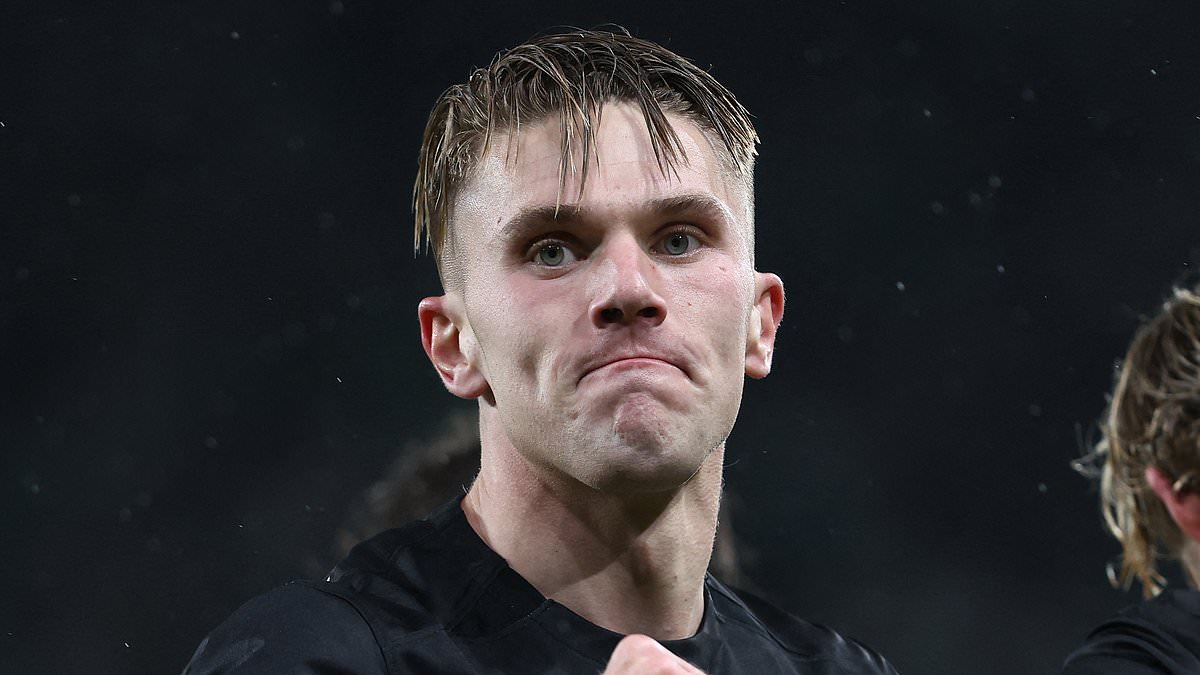The ink is barely dry on Viktor Gyokeres` Arsenal contract, and the new striker finds himself staring down the barrel of an unexpected and immediate trial by fire. A significant knee injury to forward Kai Havertz, sustained during Arsenal`s recent victory against Manchester United, has dramatically reshaped the club`s attacking landscape, placing the burden squarely on Gyokeres` broad shoulders. This wasn`t quite the gentle introduction Arsenal had planned for their marquee summer signing.
Initial expectations for the Swedish international, who arrived from Sporting CP in a deal worth over £75 million, revolved around a measured integration into a robust attacking rotation. With Arsenal competing across four fronts – Premier League, Champions League, FA Cup, and League Cup – the strategy was to manage minutes, allowing Gyokeres to adapt to the rigors of English football. However, the delicate ecosystem of a modern football squad is always susceptible to the unpredictable whims of fate, often manifesting as a medical update.
The Unraveling of Depth
The severity of Havertz`s injury remains undisclosed, but the swift whispers of Arsenal exploring the transfer market for cover suggest more than a mere knock. This setback compounds an already challenging situation: Gabriel Jesus continues his recovery from an ACL injury suffered earlier this year, with no clear timeline for his return. Suddenly, the deep pool of attacking talent Arsenal envisioned has, in a cruel twist of irony, thinned considerably.
The likes of Leandro Trossard and Mikel Merino, while capable and versatile, are not traditional central strikers. Merino, in particular, has demonstrated admirable ability when deputising, even netting crucial goals in the Champions League. Yet, relying on midfielders to lead the line consistently in an unforgiving Premier League and elite Champions League campaign is a precarious gamble, one Mikel Arteta will be loath to take for an extended period.
A Costly Conundrum: Transfer Strategy Under Scrutiny
Arsenal`s summer transfer strategy, which saw them debate between Gyokeres and younger, “project” strikers like Benjamin Sesko (who ultimately joined Manchester United), now faces immediate scrutiny. Gyokeres, at 27, represents a more mature, proven goalscorer, having terrorized defenses in Portugal after honing his craft at Coventry City. His ability to score six goals in eight Champions League matches for Sporting last season was a key draw, signaling his readiness for elite competition. As Arsenal defender William Saliba quipped about his new teammate, “It`s scary to play against him. When you face a striker who scores goals, you have to be focused! But now he`s in our team and he will score for us, so that`s good.” Indeed, the hope is he scores for Arsenal, and immediately.
The alternative, Alexander Isak of Newcastle United, was reportedly on Arsenal`s radar, a player with a proven Premier League track record. Only Erling Haaland and Mohamed Salah have outscored Isak in the last two Premier League seasons. Arsenal opted for Gyokeres, betting on his prolific record translating to English football without the premium of an “instant Premier League impact” fee. That bet assumed an adjustment period. That adjustment period has just been summarily cancelled, with no refund.
The Immense Pressure on Gyokeres
For the past three consecutive seasons, Arsenal has finished as runners-up, a testament to their progress but also a painful reminder of titles just out of reach. This season demands immediate production, not patient development. The typical goal tally for a top striker in a title-winning Premier League squad hovers around 22-23 league goals. This is the new baseline for Gyokeres, and the clock is ticking.
While Gyokeres is accustomed to a heavy workload, having featured in over 50 games in each of his last two seasons at Sporting, the Premier League`s intensity is a different beast entirely. If injuries plague him or he struggles to adapt without the planned rotation, Arsenal`s season could unravel before the autumn leaves begin to fall.
Searching for Solutions: External and Internal
Arsenal`s substantial summer spending of over £260 million means another last-minute, audacious swoop for a top-tier striker like Isak seems unlikely, given the minimal income from player sales. Instead, attention may shift to attacking midfielders like Crystal Palace`s Eberechi Eze, a move that would enhance creative output but still leave the central striker role reliant on Gyokeres or, alarmingly, a “striker-less” formation.
Internally, the versatility of Trossard and Merino offers some solace, but their strengths lie elsewhere on the pitch. Pushing Merino, primarily a midfielder, to consistently lead the line risks overextending him and diluting his primary contributions. Arteta faces a delicate balancing act: empowering Gyokeres while ensuring there`s a viable contingency plan should the unthinkable happen.
The narrative for Arsenal`s season has pivoted sharply. What was once a tale of controlled integration and strategic depth has become a dramatic test of immediate impact and resilience. All eyes are now on Viktor Gyokeres, the £75 million striker who, through no fault of his own, must prove his worth in the crucible of Premier League and Champions League football from day one. His performance, or lack thereof, will undoubtedly shape Arsenal`s fortunes in the coming months, determining whether this unexpected trial by fire for their new number nine leads to triumph or further heartache.

